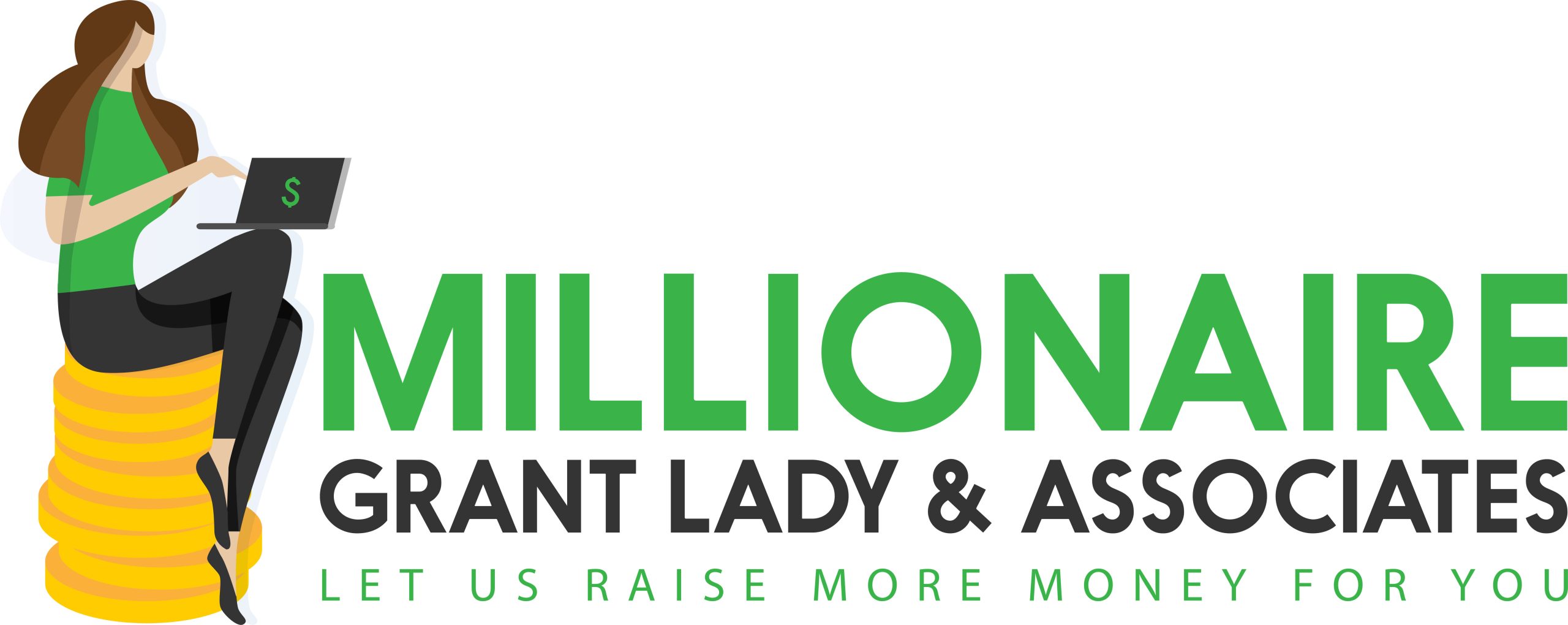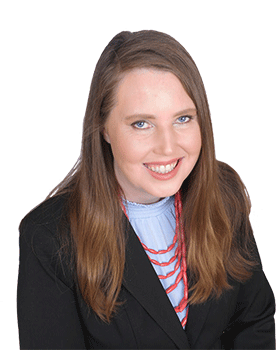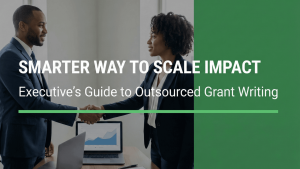When you want to learn about something new, the natural first instinct is to Google it. It’s such an integral part of our lives now that we turned the name of a search engine into a verb. Web searches are powerful tools, and we should never take for granted the privilege of living in a time in which the breadth of human history and knowledge is freely available through our computer, tablet, or phones. I use Google to look things up every day, from addresses to recipes to news articles.
What I don’t do, though, is rely on Google to find the best grant opportunities for my clients, and neither should you. If you want to find and apply for foundation funding especially, you won’t find many of the best opportunities through a web search. Google can turn up some grants, especially if it’s a large state or federal opportunity, but many other funders won’t pop up. Most foundations don’t have websites at all, and without the right tools at your disposal, you’ll never find them. This is a shame, because they might be interested in your program if they ever got the chance to hear about your work and review your proposal.
Just as you shouldn’t use AI to write your grant applications, you shouldn’t use Google or AI to search for opportunities. Only a high-quality funder database, read and analyzed by an expert, will match you with the majority of funding opportunities, which are rarely posted or publicized by foundations. Tools like Candid allow you to search by geography, focus area, and population served and to sort by number of grants, total assets, or amount given. While these tools have their shortcomings and require practice to navigate successfully, databases provide much higher quality results when compared to Google or AI search tools.
If you want to find better grant opportunities for your nonprofit, there are some important things to know first.
- The Almighty Algorithm
- What is a grant database?
- But can’t AI generate a list of foundations for me?
- Can I just get a foundation search?
The Almighty Algorithm
At this point, I think we all have a basic understanding of how internet algorithms work. From Pinterest to Instagram, every website is designed to learn what you like and then feed that back to you, and your Google searches are no different, especially if you’re signed into your browser. Because these algorithms are made to sell you things, the results will be affected by your search history, your location, and the popularity of the results themselves. If I search for “human services grant,” most of the results I will receive will immediately come from the Dallas-Fort Worth area, where I am based, even if the client I’m working on at the time is in California or Pennsylvania! If one of my grant consultants who lives in another state does the same search, they’ll see grants closer to their home. There are of course ways to affect these results, by switching location or searching anonymously or changing your keywords, but you can’t make the tool something that it’s not.
Additionally, Google’s search engine crawls websites to deliver search results to customers. Many foundations do not actually have websites for Google to crawl. As a result, even if I do a Google search for foundation grants in DFW, I will only capture a tiny portion of the foundations that actually give grant funding in this area. Grants that are highly publicized are by nature more competitive. Therefore, submitting grants only to these highly competitive foundations that you can find through Google is not a recipe for success.
Google exists to provide quick access to web-based information, to put products in front of you that you might buy, and to increase profits for Google itself. If you want to find better grant opportunities, including grant opportunities that don’t have a website, you need to use a database that exists to help nonprofits.
What is a grant database?
If you’re not a professional grant writer, a dedicated nonprofit employee, or both, you may have never heard of a grant database, such as Candid. Foundation databases are websites for nonprofits that provide data, training, access to information, and, most importantly for our purposes, a robust database of potential grant funders. We use it every day, and while it has its quirks and foibles, it’s a powerful tool for matching our clients with foundations who will want to invest in their programs.
Unlike Google, the purpose of a foundation database is to help nonprofits find what they need—information about foundations that is hard to find through other search methods, and because the databases require a paid subscription, the database creators are incentivized to help you achieve your goal of locating funders. This doesn’t mean its own algorithm is perfect, however. We always have to do multiple searches for our clients, tweaking the geography, key words, focus areas, and other details to ensure that good foundations aren’t falling through the cracks. And we always go the extra step to verify information provided by the database. This includes reviewing pages and pages of tax returns—really interesting reading, I assure you!—calling the foundation to verify application instructions, and reviewing the foundation’s website, if it exists.
Inevitably, a few of the best fits won’t show up on the first search, and we have to sift through many that won’t work with our client’s programs to find the gems. Databases are a powerful tool, but they still require time and effort to navigate. Simply put, there is no “easy” way to find funders or to win grants.
But can’t AI generate a list of foundations for me?
AI promises that it can do in-depth foundation research. We have tested this several times, and each time, we get the same results.
By telling AI to find me 20 foundations that are accepting applications for an after-school youth program, AI promptly returns exactly what I ask for. In fact, AI even provides a brief summary about each foundation that reassures me the foundations will in fact be a great match for this after school youth program.
Unfortunately, when I vetted the foundations, maybe two from the list were actually good matches. The other foundations were just businesses with the word “Foundation” in the name, foundations that had entirely different focuses than what I requested, foundations that had closed, or foundations that seemed to be figments of AI’s imagination—I could find zero evidence of the foundation through our paid database or through Google.
Clients have also brought us AI-generated lists, which we have also taken the time to vet. Each AI-generated foundation list we have analyzed has mostly been big promises but, in the end, very few actual foundations that we could apply to.
Can I just get a foundation search?
Millionaire Grant Lady and Associates works with nonprofits across the United States of every shape and size. For some clients, we provide interim grant support while they actively work to hire a full-time grant writer; for other clients, we work alongside a much larger fundraising team. For other clients, we simply complete a foundation search that can be used by the nonprofit to begin building relationships with funders and apply for grants on their own. All of my services are available a la carte.
While we strongly suggest that most of our clients take advantage of our full range of services and work with us from search to submission, many organizations just “want to know what’s out there.” In these cases, a client may only want to purchase a foundation search. You can save an enormous amount of time by having our team complete the foundation search instead of Googling grants yourself. Once you have a better idea of the options available to you, it will be easier to assess how much time, energy, and money you have to devote to seeking grant funds. If you are ready to talk more about how we can support your nonprofit’s work, schedule a call with my team today.



